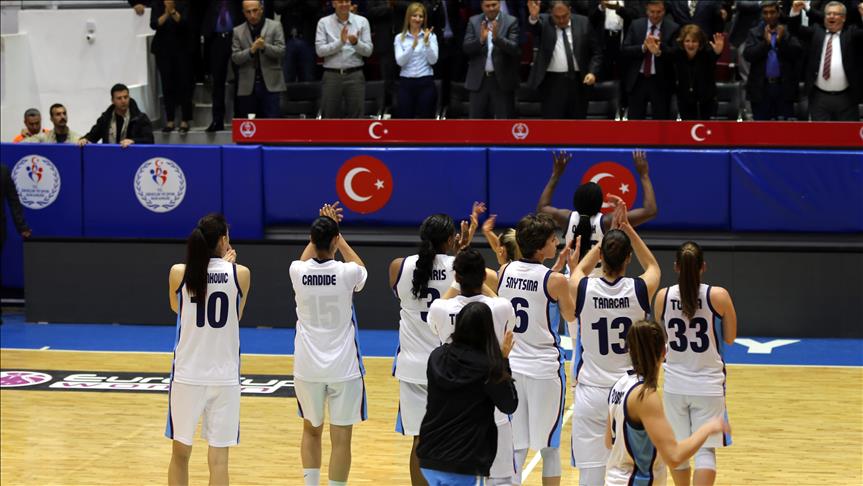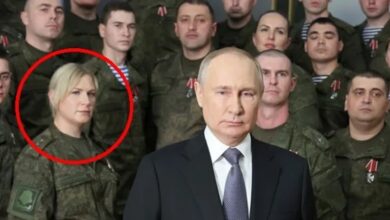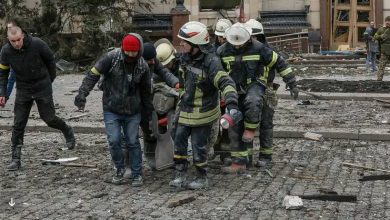
Although the BND has withdrawn from Ukraine, the country remains the most important reconnaissance target. German spies and Bundeswehr experts analyze the Russian invasion and ask themselves: How far will Putin go?
The war in Ukraine is being observed with satellites from space, with the help of informants on the ground, through TV reports and private videos and photos on social networks. And through intercepted radio messages. Experts from the Federal Intelligence Service (BND) and the Bundeswehr analyze Russian troop movements and the resistance of the Ukrainian armed forces on a daily basis. The prognosis of the experts on the possible further course of the war is not very optimistic.
The Kremlin was determined to continue the campaign. According to German security circles, Moscow wants to get at least eastern Ukraine under its control as quickly as possible, and there are still plans to take the city of Kyiv. The bloodiest phase of the war may be yet to come. Because Putin’s military has not yet used some of the weapon systems in his arsenal, and some units that are ready at the border have not yet been used.
Putin’s environment remains at his side
There is currently no evidence that the Russian war of aggression would endanger Putin’s power and influence. On the contrary: those around him are still loyal to the President. Mere speculation about Putin’s state of health is not helpful, according to security circles, and there is no evidence of illness, for example.
However, there is evidence that the Russian ruler has increasingly withdrawn in recent months, he is said to have primarily read historical and ideological writings and also written his own tracts. He hardly dealt with domestic or economic policy matters anymore.
Frustration in the Russian military high
The Ukrainian military did indeed achieve important successes and was able to repel several waves of Russian attacks – also with the help of Western weapons and equipment. According to German security circles, after a week of war, Russian losses are almost certainly far higher than the official figures of around 500 dead and 1,600 wounded soldiers , Cherson, Mariupol, Odessa or Kyiv. Frustration is high in the Russian military, logistical errors have been made, and the supply of food, petrol and ammunition is anything but smooth. According to German security authorities, reports of deserted and disillusioned military personnel are considered credible.
Security circles expect Kiev to be taken
In the first waves of attacks, it was mainly inexperienced, young soldiers who were often doing military service who were deployed. Possibly quite deliberately, according to German security experts. The tactic could be that these units might even be sacrificed in order to initially engage and wear down the Ukrainian military in exhausting combat. Subsequently, new, better-equipped and much more experienced units would be deployed, for example to lay siege rings around cities. It is to be expected, say security circles, that ultimately the capital Kyiv will also be taken. When this will happen is unclear. This could be preceded by a prolonged military encirclement and siege of the city, with sometimes catastrophic consequences for the population and a collapse in the supply of drinking water, food and electricity. In such a scenario, which German military experts are discussing, the Russian military could then create a humanitarian corridor , combined with the offer that civilians could safely leave the city. In the worst case, the remaining people would then be viewed as enemy combatants by Moscow’s troops and fought accordingly. Similar to the first Chechen war in the mid-1990s, in which the capital Grozny was extensively destroyed.
BND President was in Kyiv
When the signs were already pointing to war, Bruno Kahl, President of the Federal Intelligence Service, traveled to the Ukrainian capital of Kyiv last week. As a signal of solidarity and partnership. On the fringes of the Munich Security Conference, his Ukrainian colleagues had personally asked him not to cancel the long-planned visit. However, the BND chief’s departure turned out to be much more difficult than planned. On Wednesday, February 23, Kahl flew to Kyiv with a small delegation by plane – the BND chief is the only German agency head who has an official plane. The plane took off immediately and flew to a neighboring country. They did not want to take the risk that it could be destroyed in a missile attack or even fall into the hands of the Russian military.
German diplomats and spies leave Kyiv
In Kyiv, meanwhile, the suitcases were already packed. The German embassy closed temporarily, the diplomats left, and the German spies also prepared to leave. The BND residency was wound up, explosive documents and data carriers destroyed. At this point, Western intelligence services considered a Russian invasion to be very likely.
The Russian attack then took place in the early morning hours of the following day, Thursday, February 24. Bombs and rockets also hit the Ukrainian capital. BND President Kahl immediately made his way home. However, this was no longer possible by plane, and so a convoy of several vehicles headed for Poland. Which turned out to be difficult and lengthy, because numerous Ukrainians were already on the run. The BND chief was only back in Berlin last Friday.




